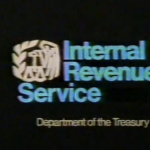David Inserra
David Inserra
No one wants revenge porn and other forms of non-consensual intimate imagery (NCII) to spread online or offline. And with AI being used to create even more of this kind of content, shouldn’t we be able to find common ground to remove such content quickly?
That’s the approach taken by the TAKE IT DOWN Act cosponsored by Sen. Ted Cruz (R‑TX) and Sen. Amy Klobuchar (D‑MN), which passed the Senate and is now being considered in the House of Representatives. While the bill has noble intentions, it creates a takedown regime that will be abused to silence legitimate speech and threaten encryption.
NCII Should Be — and Already Is — Illegal
The first portion of the TAKE IT DOWN Act makes it a crime to publish and share content both real and digitally created, intimate imagery of individuals without their consent. These prohibitions create stricter rules and greater penalties when they involve minors. These provisions also include exceptions for content that is a matter of public concern or was shared with law enforcement, part of a legal filing, within a medical or educational purpose or is otherwise shared as part of reporting or trying to help the victim.
This section closely mirrors similar legislation such as the SHIELD and DEFIANCE acts, which also criminalize or create civil liability for those who produce or try to distribute such content. Indeed, NCII deserves to be illegal and, as other groups have pointed out, there are already an array of criminal and civil laws that apply to NCII. To the extent that these laws need to be clarified and strengthened to apply to modern AI-generated NCII, Congress can take carefully tailored action to ensure real legal punishments can be applied to those disseminating such abusive content.
TAKE IT DOWN’s Unintended Consequences
Unfortunately, » Read More
https://www.cato.org/blog/take-it-down-act-shows-noble-intentions-can-make-bad-tech-policy






